Extract from interview wih Helen Frizzell, 14 May 2010
Reproduced with permission of Avis Wilkes
So, you took the trolley round ...
We did the trolley [at the 1st Australian Field Hospital at Vung Tau] and ....
How long would that take?
I think that could take as long as you – how long is a piece of string? Because it was during that, that, that gave you your entry or your, you know, that you got to know the boys and particularly any – if there were new admissions and that, you'd probably spend a bit more time with them. Things like their pyjamas, were supplied by the, you know, they had hospital issue blue pyjamas. The Red Cross provided, and I think New Zealand might have been involved with some of this, we used to provide them with sort of toilet bags with shaving gear and, you know, all their toilet stuff because they'd very often come straight in from the bush where they didn't have anything. So the Red Cross, there were lots of Red Cross bags that were made up with soap and shaving gear and tooth brushes and, tissues and stuff like that. Quite a good selection. So everybody when they came in got one of those.
Ah, I think for those who were bed bound we had library books, as such, I mean it was pretty basic library, probably full of Zane Grey books. You know, they were paperbacks that, I don't know where they'd been donated from, but they, and it didn't really matter, you know, they were in pretty tacky condition. But they could, yeah, they used to read those. Magazines, like the car magazines, and sports magazines. And, at that stage I think there was sort of Pix or something, it was an Australian thing with a, you know, pin up girl on the front and they used to like.... We didn't have any Playboy...
Were they ever asked for?
Oh, I think probably. But, stuff like that. So, that going round with the trolley – that was your, that was your way of making contact with them, and it was by making contact that they then had somebody from home to talk to. And then if they were Kiwis, it always turned out that somebody always knew somebody who knew somebody, and that was always good for them.
Vietnam War Oral History Project, Manatu Taonga Ministry for Culture & Heritage






